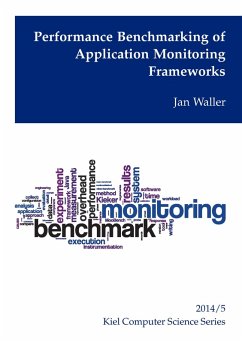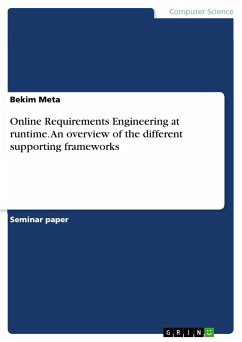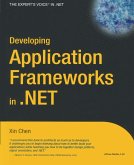Application-level monitoring of continuously operating software systems provides insights into their dynamic behavior, helping to maintain their performance and availability during runtime. Such monitoring may cause a significant runtime overhead to the monitored system, depending on the number and location of used instrumentation probes. In order to improve a system's instrumentation and to reduce the caused monitoring overhead, it is necessary to know the performance impact of each probe.While many monitoring frameworks are claiming to have minimal impact on the performance, these claims are often not backed up with a detailed performance evaluation determining the actual cost of monitoring. Benchmarks can be used as an effective and affordable way for these evaluations. However, no benchmark specifically targeting the overhead of monitoring itself exists. Furthermore, no established benchmark engineering methodology exists that provides guidelines for the design, execution, and analysis of benchmarks.This thesis introduces a benchmark approach to measure the performance overhead of application-level monitoring frameworks. The core contributions of this approach are 1) a definition of common causes of monitoring overhead, 2) a general benchmark engineering methodology, 3) the MooBench micro-benchmark to measure and quantify causes of monitoring overhead, and 4) detailed performance evaluations of three different application-level monitoring frameworks. Extensive experiments demonstrate the feasibility and practicality of the approach and validate the benchmark results. The developed benchmark is available as open source software and the results of all experiments are available for download to facilitate further validation and replication of the results.
Hinweis: Dieser Artikel kann nur an eine deutsche Lieferadresse ausgeliefert werden.
Hinweis: Dieser Artikel kann nur an eine deutsche Lieferadresse ausgeliefert werden.








